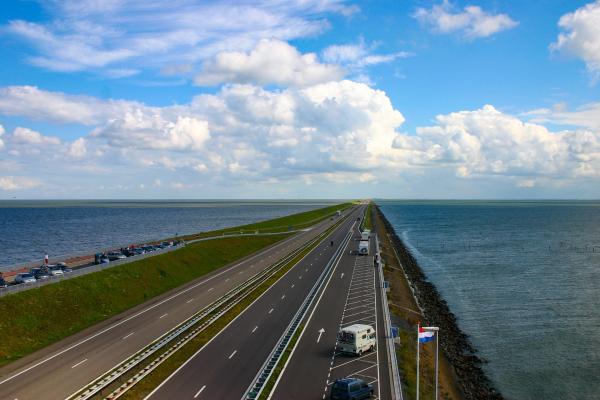As part of their Spring 2024 Speaker Series last month The Ohio State University's Center for Urban Research and Analysis alongside the Byrd Polar and Climate Research Center, hosted Chris Zevenbergen, a professor of flood resilience at the Delft University of Technology in the Netherlands. Professor Zevenbergen made a compelling case for a holistic approach to urban planning in order to mitigate the impacts of extreme rainfall, flooding, and severe weather events. Drawing from his wealth of experience, he highlighted the importance of blending traditional and innovative stormwater management techniques that seamlessly integrate with natural ecosystems.
As uncertainties in urban planning and water management escalate, there is a pressing need for strategies that look beyond the next two decades. Adaptive Delta Management (ADM) offers a flexible framework that aligns short-term actions with long-term objectives, contrasting with the costly worst-case scenarios.
Zevenbergen introduced the Three Points Approach (3PA) to stormwater management, which categorizes efforts into three key areas: design, extreme, and everyday domains. The design domain focuses on engineering solutions to detain and convey water, while the extreme domain plans for the resilience of these solutions against severe weather events, advocating for flexibility through nature-based solutions. The everyday domain emphasized daily water retention and purification during periods of minimal rainfall.
Professor Zevenbergen emphasized a shift from incremental adaptive planning to proactive, planned adaptation that integrates with broader environmental and energy strategies. This approach emphasizes designing with potential failures in mind and maximizing the long-term benefits of water management interventions.
By aligning with national policies and considering a comprehensive portfolio of measures, cities can foster resilience in stormwater management systems and capitalize on opportunities for transformation toward water-sensitive designs.
To access video recordings of previous events, including this one, visit the Byrd Center's Vimeo channel.
Related stories:
